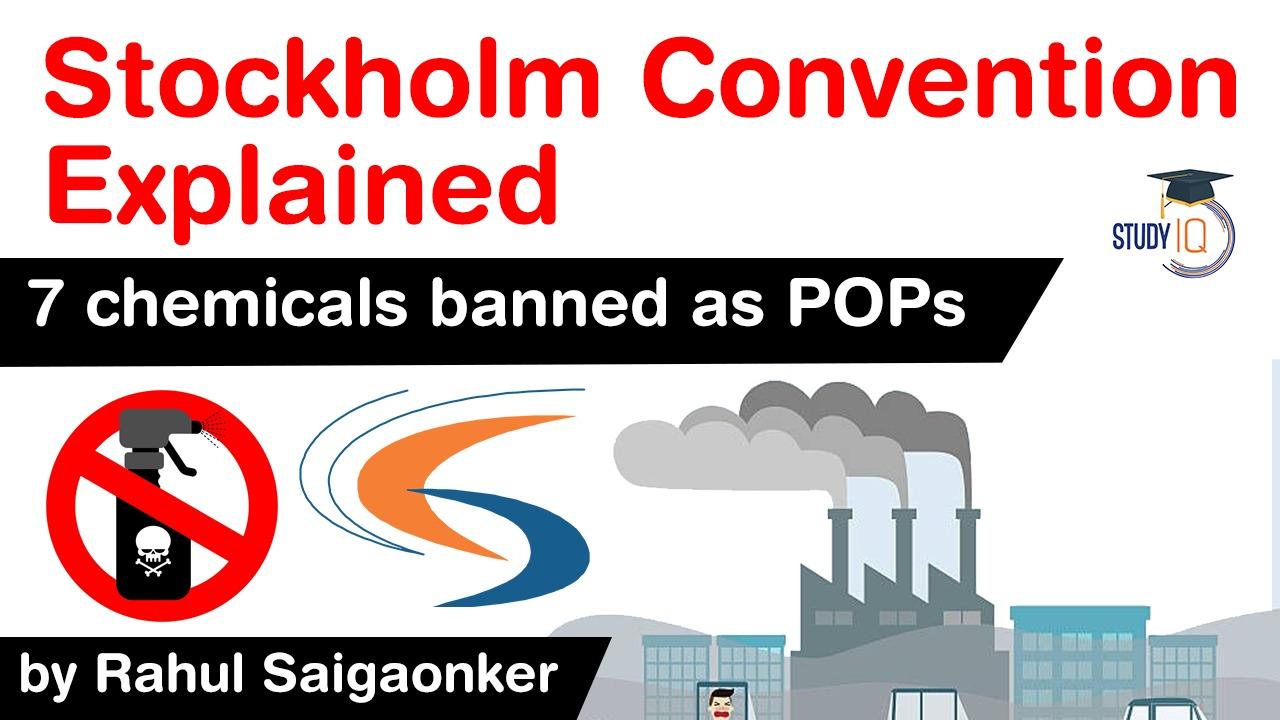Table of Contents

The news
- The Union Cabinet has approved the ratification of seven chemicals listed under Stockholm Convention on Persistent Organic Pollutants (POPs).
- The Cabinet further delegated its powers to ratify chemicals under the Stockholm Convention to Ministries of External Affairs (MEA) and Environment, Forest and Climate Change (MoEFCC) in respect of POPs for streamlining the procedure.
What are Persistent organic Pollutants?
- POPs (Persistent Organic Pollutants)
- Persistence in the environment
- Less soluble in water
- They show long-range environmental transport (LRET)
- Bio-accumulation in the fatty acids in living organisms
- Adverse effect on human health/ environment
- Exposure to POPs can lead to cancer, damage to central & peripheral nervous systems, diseases of the immune system, reproductive disorders and interference with normal infant and child development.
What is Stockholm Convention?
Which Chemicals are POP now?
- The Union Cabinet has approved the ratification of seven chemicals listed under Stockholm Convention.
- The regulation inter alia prohibits the manufacture, trade, use, import and export of seven chemicals, namely:
- Chlordecone
- Hexabromobiphenyl
- Hexabromodiphenyl ether and Hepta Bromodiphenyl Ether (Commercial octa-BDE)
- Tetrabromodiphenyl ether and Pentabromodiphenyl ether (Commercial penta-BDE)
- Pentachlorobenzene
- Hexabromocyclododecane
Why did We do it?
- India is committed to Stockholm convention. This decision demonstrates India’s commitment to meet its international obligations. This will help enhance India’s image as responsible nation.
- It also indicates the resolve of the Government to take action on POPs by implementing control measures.
- The ratification process would enable India to access the Global Environment Facility (GEF) financial resources.
Global Environment Facility
- GEF was established with the Rio Earth Summit of 1992 with HQ at Washington, D.C.
- The GEF is jointly managed by the United Nations Development Programme (UNDP), the World Bank(WB), and the United Nations Environment Programme (UNEP).
- It is a financial mechanism to help tackle our planet’s most pressing environmental problems.
- It provides funds to the developing countries and transition economies for projects related to climate change, biodiversity, the ozone layer, etc.

Latest Burning Issues | Free PDF

























 WhatsApp
WhatsApp